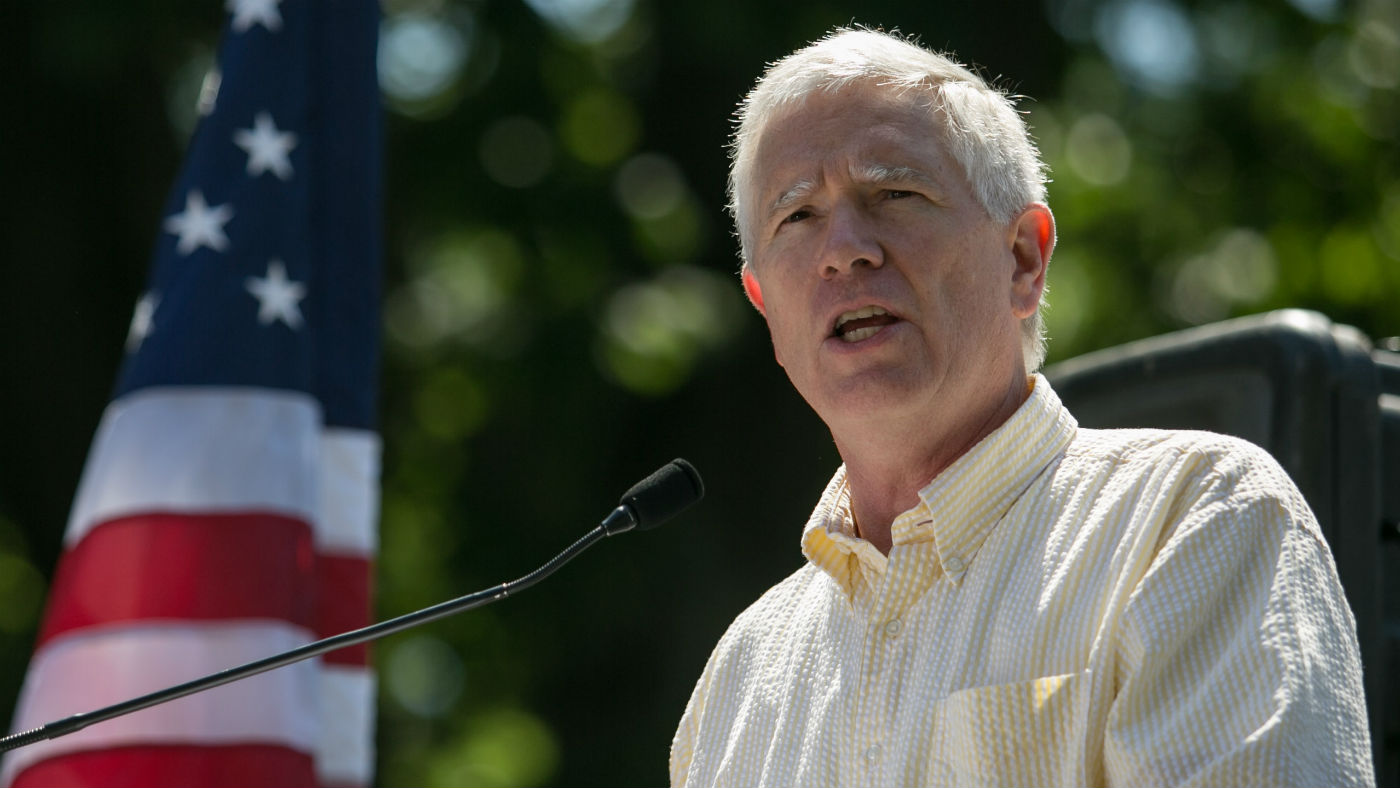US lawmaker says falling rocks could be pushing up sea levels
Republican climate change sceptic Mo Brooks uses white cliffs of Dover as an example of erosion

A free daily email with the biggest news stories of the day – and the best features from TheWeek.com
You are now subscribed
Your newsletter sign-up was successful
A US lawmaker has been ridiculed for suggesting that rising sea levels could be caused by falling rocks rather than climate change.
Alabama congressman Mo Brooks, who sits on the House of Representatives’ science committee, was one of several members to grill Dr Philip Duffy, president of the Woods Hole Research Center for climate change at a hearing on Wednesday.
Even though the subject of the hearing was how technology could be used for climate change adaptation, “the hearing frequently turned to the basics of climate science”, Science magazine reports. Several Republican members expressed scepticism about global warming.
The Week
Escape your echo chamber. Get the facts behind the news, plus analysis from multiple perspectives.

Sign up for The Week's Free Newsletters
From our morning news briefing to a weekly Good News Newsletter, get the best of The Week delivered directly to your inbox.
From our morning news briefing to a weekly Good News Newsletter, get the best of The Week delivered directly to your inbox.
The tone was set by committee chairman Lamar Smith of Texas, who opened the hearing by stressing the need to “acknowledge the uncertainties that exist”.
He later cited a Wall Street Journal opinion piece claiming that rising sea levels are not linked climate change - “a view that rejects thousands of scientific studies”, says Science.
Fellow Republican Dana Rohrabacher said he was “disturbed” by the implication that climate change was an established fact, telling committee members: “We should all be open to different points of view.”
It was Brooks’ interjection which drew the most comment, however, as the lawmaker challenged Duffy’s assertion that rising sea levels have “clearly been attributed to human activities, greenhouse gas emissions”.
A free daily email with the biggest news stories of the day – and the best features from TheWeek.com
“What about erosion?” Brooks said, before suggesting that silt build-up in the world’s rivers could be to blame.
“Every time you have that soil or rock, whatever it is, that is deposited into the seas, that forces the sea levels to rise because now you've got less space in those oceans because the bottom is moving up,” he said.
He also cited the white cliffs of Dover as a potential site of erosion, “where you have the waves crashing against the shorelines" and “cliffs crash into the sea”.
“All of that displaces the water which forces it to rise, does it not?” Brooks asked.
Duffy replied that “on human timescales those are minuscule effects”.
According to an investigation by The Washington Post, it would take “a volume of earth equivalent to taking the top five inches of every one of the United States’ 9.1 million square miles of land area and using it to coat the bottom of the world’s oceans” for erosion to be responsible for rising sea levels.
-
 Political cartoons for February 7
Political cartoons for February 7Cartoons Saturday’s political cartoons include an earthquake warning, Washington Post Mortem, and more
-
 5 cinematic cartoons about Bezos betting big on 'Melania'
5 cinematic cartoons about Bezos betting big on 'Melania'Cartoons Artists take on a girlboss, a fetching newspaper, and more
-
 The fall of the generals: China’s military purge
The fall of the generals: China’s military purgeIn the Spotlight Xi Jinping’s extraordinary removal of senior general proves that no-one is safe from anti-corruption drive that has investigated millions
-
 The world is entering an ‘era of water bankruptcy’
The world is entering an ‘era of water bankruptcy’The explainer Water might soon be more valuable than gold
-
 Climate change could lead to a reptile ‘sexpocalypse’
Climate change could lead to a reptile ‘sexpocalypse’Under the radar The gender gap has hit the animal kingdom
-
 The former largest iceberg is turning blue. It’s a bad sign.
The former largest iceberg is turning blue. It’s a bad sign.Under the radar It is quickly melting away
-
 How drones detected a deadly threat to Arctic whales
How drones detected a deadly threat to Arctic whalesUnder the radar Monitoring the sea in the air
-
 ‘Jumping genes’: how polar bears are rewiring their DNA to survive the warming Arctic
‘Jumping genes’: how polar bears are rewiring their DNA to survive the warming ArcticUnder the radar The species is adapting to warmer temperatures
-
 Environment breakthroughs of 2025
Environment breakthroughs of 2025In Depth Progress was made this year on carbon dioxide tracking, food waste upcycling, sodium batteries, microplastic monitoring and green concrete
-
 Crest falling: Mount Rainier and 4 other mountains are losing height
Crest falling: Mount Rainier and 4 other mountains are losing heightUnder the radar Its peak elevation is approximately 20 feet lower than it once was
-
 Death toll from Southeast Asia storms tops 1,000
Death toll from Southeast Asia storms tops 1,000speed read Catastrophic floods and landslides have struck Sri Lanka, Indonesia, Thailand and Malaysia